12 start with W start with W
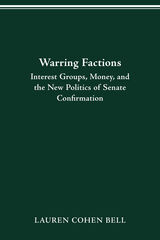
Warring Factions focuses on the United States Senate’s confirmation process, the constitutional process the Senate uses to approve or reject the president’s choices to fill federal government positions. It is a book about history, the evolution, and, arguably, the decline of the process. Most significantly, it is a book that demonstrates the extent to which interest groups and money have transformed the Senate’s confirmation process into a virtual circus.
Based on in-depth research, including two dozen original interviews with United States senators, former senators and Senate staff members and interest group leaders, this volume demonstrates that today’s confirmation process is nothing more than an extension of the Senate’s legislative work. Changes to internal Senate norms in the 1960s and 1970s, coupled with changes to the external political environment, have allowed interest groups to dominate the Senate confirmation process.
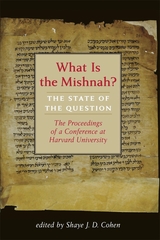
The Mishnah is the foundational document of rabbinic Judaism—all of rabbinic law, from ancient to modern times, is based on the Talmud, and the Talmud, in turn, is based on the Mishnah. But the Mishnah is also an elusive document; its sources and setting are obscure, as are its genre and purpose.
In January 2021 the Harvard Center for Jewish Studies and the Julis-Rabinowitz Program on Jewish and Israeli Law of the Harvard Law School co-sponsored a conference devoted to the simple yet complicated question: “What is the Mishnah?” Leading scholars from the United States, Europe, and Israel assessed the state of the art in Mishnah studies; and the papers delivered at that conference form the basis of this collection. Learned yet accessible, What Is the Mishnah? gives readers a clear sense of current and future direction of Mishnah studies.

Does state acquisition of nuclear weapons lead to stability and peace or instability and crises? This is one of the great debates in international relations scholarship. Michael D. Cohen argues that nuclear weapons acquisition often does dangerously embolden the acquiring state to undertake coercion and aggression, but that this behavior moderates over time as leaders learn the dangers and limitations of nuclear coercion. This book examines the historical cases of the Soviet Union and Pakistan in depth and also looks at mini-cases involving the United States, China, and India. This book broadens our understanding of how leaders and states behave when they acquire nuclear weapons and is important reading for scholars and students of international relations, security studies, and political psychology.
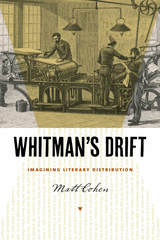
Still, as the budding poet learned, books neither sell themselves nor move themselves: without an efficient set of connections to get books to readers, the democratic media-saturated future Whitman imagined would have remained warehoused. Whitman’s works sometimes ran through the “many-cylinder’d steam printing press” and were carried in bulk on “the strong and quick locomotive.” Yet during his career, his publications did not follow a progressive path toward mass production and distribution. Even at the end of his life, in the 1890s as his fame was growing, the poet was selling copies of his latest works by hand to visitors at his small house in Camden, New Jersey. Mass media and centralization were only one part of the rich media world that Whitman embraced.
Whitman’s Drift asks how the many options for distributing books and newspapers shaped the way writers wrote and readers read. Writers like Whitman spoke to the imagination inspired by media transformations by calling attention to connectedness, to how literature not only moves us emotionally, but moves around in the world among people and places. Studying that literature and how it circulated can help us understand not just how to read Whitman’s works and times, but how to understand what is happening to our imaginations now, in the midst of the twenty-first century media explosion.
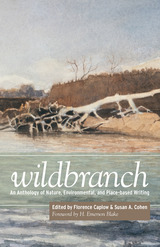
Wildbranch: An Anthology of Nature, Environmental, and Place-based Writing is a powerful collection of mostly unpublished essays and poetry by both prominent American environmental writers and exciting new voices. The poetry and essays by more than fifty contributors offer the reader glimpses into places as diverse as a forest in West Africa, the moors of Ireland, the canyons of the Sonoran desert mountains, and the fields of New England, and they reflect the varied perspectives of field biologists, hunters, farmers, environmental educators, wilderness guides, academics, writers, and artists.
The collection is an intimate portrait of the natural world drawn through the wisdom, ecological consciousness, and open hearts of these exceptional contributors. The Wildbranch Writing Workshop, cosponsored by Orion magazine and Sterling College, has encouraged thoughtful natural history, outdoor, and environmental writing for more than twenty years. The Wildbranch faculty has included its founder E. Anne Proulx, the essayists Edward Hoagland, Janisse Ray, and Scott Russell Sanders, the poet Alison Hawthorne Deming, and many other notable authors. Many have work included in the anthology.
Winner of the New Mexico Book Association's Southwest Book Design & Production Awards for Excellence in the category Trade Books: Non-illustrated.
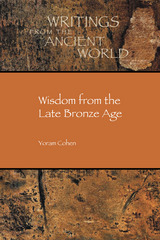
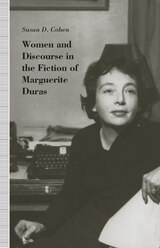
Cohen shows how Duras's writings, even the controversial "erotic" works, expose and subvert the repression of women in traditional, dominant discourse and at the same time present an alternative, nonrepressive discursive model. She formulates a concept of creative "ignorance," which she identifies as the generative principle of Duras's textual production and the approach to language it proposes. Cohen also explores the distinctive features of Duras's prose, describing how the writer achieves the ritual, legendary aura that characterizes her work.
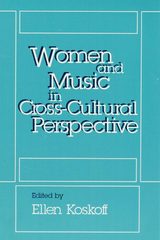
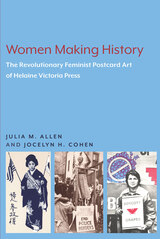
Nourished by the cultural exuberance of second wave feminism, Helaine Victoria Press was a home-grown effort of two young women, Jocelyn Cohen and Nancy Poore, who learned how to print, established a printshop, and became the first publishers of women’s history postcards. The authors of Women Making History demonstrate that by creating postcards, Helaine Victoria Press aimed to do more than provide a convenient writing surface or even affect collective memory. Instead, they argue, the press generated feminist memory. The cards, each with the picture of a woman or group of women from history, were multimodal. Pictures were framed in colors and borders appropriate to the era and subject. Lengthy captions offered details about the lives of the women pictured. Unlike other memorials, the cards were mobile: they traveled through the postal system, viewed along the way by the purchasers, mail sorters, mail carriers, and recipients. Upon arriving at their destinations, cards were often posted on office bulletin boards or refrigerators at home, where surroundings shaped their meanings.
This is the first book to demonstrate the relationships between the feminist art movement, the women in print movement, and the scholars studying women’s history. Readers will be drawn to both the large quantity of illustrative materials and the theoretical framework of the book, as it provides an expanded understanding of rhetorical multimodality.

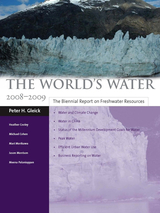
• water and climate change
• water in China
• status of the Millennium Development Goals for water
• peak water
• efficient urban water use
• business reporting on water
This new volume contains an updated chronology of global conflicts associated with water, as well as brief reviews of issues regarding desalination, the Salton Sea, and the Three Gorges Dam.
From the world’s leading authority on water issues, The World’s Water is the most comprehensive and up-to-date source of information and analysis on freshwater resources and the political, economic, scientific, and technological issues associated with them. It is an essential reference for water resource professionals in government agencies and nongovernmental organizations, researchers, students, and anyone concerned with water and its use.
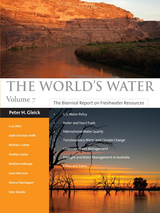
Volume 7 features chapters on U.S. water policy, transboundary waters, and the effects of fossil fuel production on water resources, among other timely issues. Water briefs provide concise updates on topics including bottled water, The Great Lakes Water Agreement, and water and security.
The World's Water is coauthored by MacArthur "genius" Peter H. Gleick and his colleagues at the world-renowned Pacific Institute. Since the first volume was published in 1998, the series has become an indispensable resource for professionals in government agencies and nongovernmental organizations, researchers, students, and anyone concerned with water and its use.
READERS
Browse our collection.
PUBLISHERS
See BiblioVault's publisher services.
STUDENT SERVICES
Files for college accessibility offices.
UChicago Accessibility Resources
home | accessibility | search | about | contact us
BiblioVault ® 2001 - 2024
The University of Chicago Press









